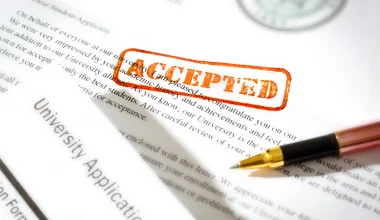Comparative education is an academic field that studies education systems, policies, and practices across different countries or regions. Comparative education aims to identify similarities and differences between education systems to gain insights into how to improve education policy and practice.
In this article, we will explain what is Comparative education and explore the concept of comparative education in more detail, including its history, methodology, and critical ideas.
We will also discuss the importance of comparative education in today’s globalized world and some of the challenges that researchers in this field face.

Table of contents
What is Comparative Education
Comparative education is a multidisciplinary field that compares educational systems, policies, and practices across countries, regions, or cultures. The area aims to understand the similarities and differences in educational systems and how these systems affect individuals and societies.
Comparative education examines various aspects of education, including curriculum, teaching methods, student performance, governance, funding, and cultural and social contexts.
Researchers in comparative education also study the historical, political, economic, and social factors that shape educational systems in different countries.
Comparative education seeks to answer several important questions, including:
- What are the key features of different educational systems, and how do they vary across countries?
- What are the effects of educational systems on individual and societal outcomes, such as economic development, social mobility, and civic engagement?
- How can educational policies and practices be improved to meet the needs of students and society better?
The field of comparative education has important implications for policymakers, educators, and researchers. By understanding the strengths and weaknesses of different educational systems, policymakers can develop more effective policies and practices that improve educational outcomes.
Educators can also benefit from comparative education by learning about innovative teaching methods and curriculum designs that have been successful in other countries.
Researchers can use comparative education to identify new study areas and test theories about the relationships between education and society.
Overall, comparative education is a valuable field of study that helps us better understand the complexities of education and how it shapes individuals and societies.
Also read: What is Passing in College?(Best Explanation with FAQs)
What is The History of Comparative Education
The history of comparative education dates back to the 18th century when European scholars began to compare educational systems in different countries. However, the formal development of comparative education as a field of study began in the late 19th century and early 20th century.
One of the earliest pioneers of comparative Education was Friedrich Paulsen, a German philosopher, and educator, who published his work “The German Education System and its Significance for the Cultural Development of Germany” in 1873.
This work compared the German education system with other European systems and emphasized the importance of education in shaping national identity.
Another significant figure in the development of comparative Education was Maria Montessori, an Italian physician and educator, who introduced a new method of education known as the Montessori Method.
This method emphasized the importance of self-directed learning and individualized instruction, and it was widely adopted in many countries worldwide.
In the early 20th century, several international organizations got established to promote the study of comparative education. The International Bureau of Education (IBE) was established in 1925 to promote cooperation among educational systems worldwide.
They founded the Comparative Education Society in Europe (CESE) in the early 20th century. It became a significant forum for scholars to exchange ideas and educational research systems in different countries.
During the mid-20th century, comparative education became increasingly important as a field of study as countries worldwide sought to learn from each other and improve their educational systems.
Many countries established educational exchanges and partnerships with other countries, and comparative education played a crucial role in facilitating these exchanges.
In the latter half of the 20th century, comparative education continued to evolve as scholars examined the social, cultural, and political factors that shape educational systems.
Comparative education remains an essential field of study as countries worldwide continue to learn from each other and work together to improve their educational systems.
Also read: What is Passing in College?(Best Explanation with FAQs)
What Are The Key Concepts of Comparative Education
Comparative education is a field of study that examines educational systems and practices across different countries and cultures.
It encompasses various concepts and theories that help researchers and educators understand how education is organized and implemented in other contexts.
Here are some key concepts of comparative education:
- Cross-national analysis: This involves comparing educational systems and practices across different countries. Cross-national analysis can help identify similarities and differences in education policies, procedures, and outcomes and inform education reforms and improvements.
- Educational transfer refers to adapting or transferring educational practices, policies, or systems from one country or context to another. Academic transfer can occur through formal agreements, international organizations, or informal exchanges between educators and researchers.
- Cultural context refers to the cultural, social, and historical factors shaping education in different countries and contexts. Understanding the cultural context of education is essential for designing educational policies and practices that are relevant and effective for local communities.
- Globalization refers to the increasing interconnectedness of economies, cultures, and societies worldwide. Globalization has significantly impacted education, spreading educational ideas and practices across borders.
- Equity: This refers to fairness and social justice in education. Comparative education researchers examine how educational systems promote or hinder equity and how policies and practices can reduce inequalities in access to education and educational outcomes.
- Development: It refers to countries and regions’ economic, social, and political progress. Comparative education researchers examine how education contributes to action and how educational policies and practices can promote economic growth, social inclusion, and democratic participation.
- Education policy refers to the principles, goals, and strategies that guide educational decision-making and practice. Comparative education researchers analyze policies across different countries and contexts and examine their impact on educational outcomes and development.
These are some of the critical concepts of comparative education, and they are essential for understanding the complex and dynamic nature of educational systems worldwide.
By examining education across borders, comparative education can help researchers and educators identify best practices, learn from different experiences, and develop innovative solutions to educational challenges.
Also read: How Many Credits to Graduate College in 2023 | A Must Read
What is The Importance of Comparative Education in Todays World
Comparative education is becoming increasingly important today as globalization and interconnectedness shape our economies, cultures, and societies. Here are some reasons why comparative education is essential in today’s world:
Learning from other countries
Comparative Education allows educators and policymakers to learn from the experiences of other countries and contexts. By studying education systems in different countries, researchers can identify innovative practices and policies that can be adapted and implemented in their own countries.
Understanding cultural context
Cultural, social, and historical factors shape education. By understanding the cultural context of education in different countries, educators can design policies and practices that are relevant and effective for local communities.
Promoting equity
It can help identify inequalities in access to education and educational outcomes across different countries and contexts. By examining best practices from other countries, policymakers can design policies and procedures that promote equity and social justice in education.
Contributing to economic development
Education is a crucial driver of economic development, and comparative education can help identify how education contributes to economic growth and development in different countries. By learning from the experiences of other countries, policymakers can design education policies that promote economic growth and prosperity.
Facilitating international cooperation
It can encourage international collaboration and educational partnerships. By sharing experiences and best practices, countries can work together to improve education outcomes and promote global understanding and cooperation.
Preparing students for a globalized world
As the world becomes more interconnected, students must be ready to navigate different cultures, languages, and contexts. It can help educators design curricula and teaching methods that prepare students for a globalized world.
In today’s world, comparative education is essential for promoting educational excellence, equity, and development.
Researchers and policymakers can identify innovative solutions to academic challenges and promote global cooperation and understanding by examining education systems and practices across different countries and contexts.
Also read: 10 Best Small Midwest Colleges In 2023| Apply Now
What are The Challenges Faced in Comparative Education
Comparative education is a complex and challenging field of study. Here are some of the challenges faced in comparative education:
- Cultural context: Cultural, social, and historical factors shape educational systems, which can be challenging to understand and analyze. Researchers need to be sensitive to the cultural context of education in different countries and use appropriate research methods to account for cultural differences.
- Language barriers: It often involves studying educational systems and practices in different languages. Language barriers can make it difficult for researchers to access and analyze relevant information and hinder communication and collaboration between researchers and educators from other countries.
- Data availability and comparability: Comparing educational systems across different countries requires reliable and comparable data. However, data availability and comparability can be challenging in comparative education, as other countries may use different definitions and measurements for educational variables.
- Political sensitivity: Education is often a politically sensitive topic, and comparative education researchers need to be aware of the political context in which they work. Researchers may need to navigate political tensions, conflicts, and sensitivities and face obstacles to accessing data or information in some countries.
- Ethical considerations: Researchers must consider ethical issues related to research participants, such as informed consent, privacy, and confidentiality. They must also be aware of cultural and moral differences in research practices and standards across countries.
- Bias and subjectivity: Comparative education research can get influenced by the preferences and subjectivities of the researchers themselves. Researchers must be aware of their cultural, social, and historical perspectives and use appropriate methods to minimize bias and subjectivity in their research.
- Changing educational landscapes: Educational systems and practices constantly evolve, making comparing academic procedures and courses across different countries and contexts challenging. Researchers must be aware of these changes and adapt their research methods and approaches accordingly.
These are some of the challenges faced in comparative education. Despite these challenges, comparative education remains an important and valuable field of study for promoting global understanding, cooperation, and educational excellence.
Also read: Millikin University 2023: Admission Requirements, Scholarships, Tuition
Frequently Asked Questions
According to George Bereday, comparative education is a field in which scholars who had previously learned the tools of their trade through induction in a discipline such as psychology, sociology, history, or economics applied the concepts and methods of that discipline in comparative education.
Comparative education will help articulate generalizations or principles helpful in achieving the other field goals and contributing to knowledge more broadly.
Tilly (1984) distinguishes four comparative analysis types: individualizing, universalizing, variation-finding, and encompassing.
The first goal of comparative analysis is to provide detailed contextual descriptions of the various systems and policies under consideration.
M. A. Jullien de Paris articulated this concept of Comparative Education for the first time in 8I 7. It was also clearly expressed by Matthew Arnold and Sir Michael Sadler, two English pioneers in the field.
Conclusion
Comparative education examines educational systems and practices in different countries to identify similarities and differences and understand the factors that contribute to academic success.
Through comparative education, researchers can gain insights into how various educational systems function and how improvements can serve students better. Despite its many benefits, comparative education has challenges, including the need for cross-cultural sensitivity and the difficulty of comparing complex educational systems.
Nonetheless, the comparative education study remains valuable for educators and policymakers seeking to improve educational outcomes worldwide.

